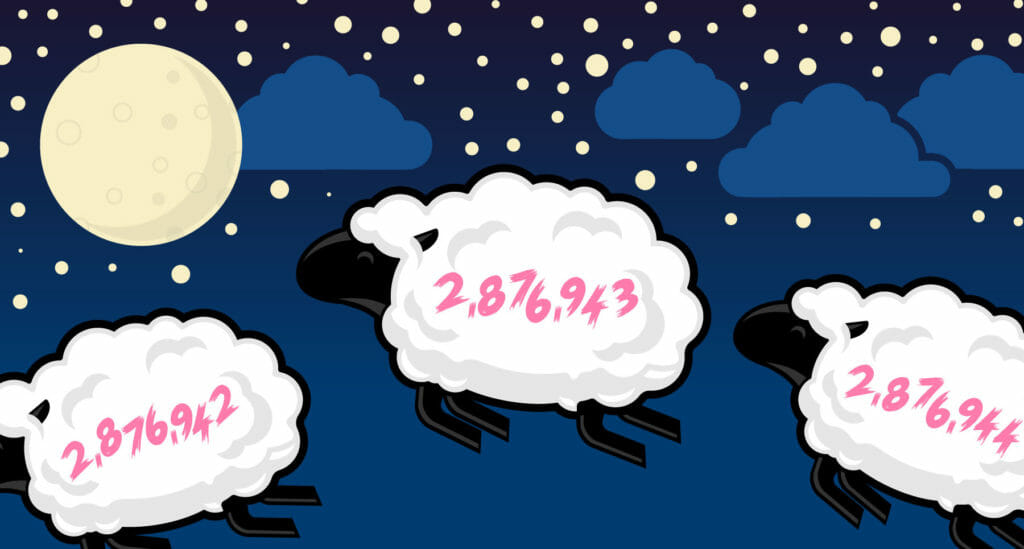
Almost everyone has suffered from sleep deprivation at least once. Whether it’s a rare occurrence or a feature of your everyday life, the lack of sleep is very common nowadays. But what is sleep deprivation?
Let’s explore the realities of sleep deprivation: its causes, its effects on your mind and body, how to prevent it, and how to treat it.
What Is Sleep Deprivation?
Sleep deprivation is not a disease or condition; it simply means you are not getting enough sleep. Whether it’s caused by a busy time at work, an upcoming school exam, or a crying baby, sleep deprivation affects your mental and physical health, and the effects can be significant.
Sleep deprivation has become more common in recent years, as people embrace the “hustle” mentality and work longer hours.
Another name for sleep deprivation is sleep insufficiency. Whatever you call it, sleep deprivation can be acute or chronic. Acute sleep deprivation occurs when a person fails to get quality sleep within 48 hours. If that lack of quality sleep becomes consistent, you can suffer from chronic sleep deprivation, also known as sleep restriction.
Sleep deprivation has become more common in recent years, as people embrace the “hustle” mentality and work longer hours. New studies have shown that 1 out of 5 adults are sleep deprived. Older adults often have difficulty falling asleep due to changes in their sleep patterns, such as taking on responsibility for grandkids, or retiring. Approximately half of all people older than 65 have sleeping problems.
A recent study found that the number of hours of sleep you get is important, but sleep quality is equally important. Even if you get eight hours of sleep, you can still suffer from sleep deprivation if you wake up multiple times in the night, which you might not remember doing.
How Much Sleep Do You Need to Prevent Sleep Deprivation?
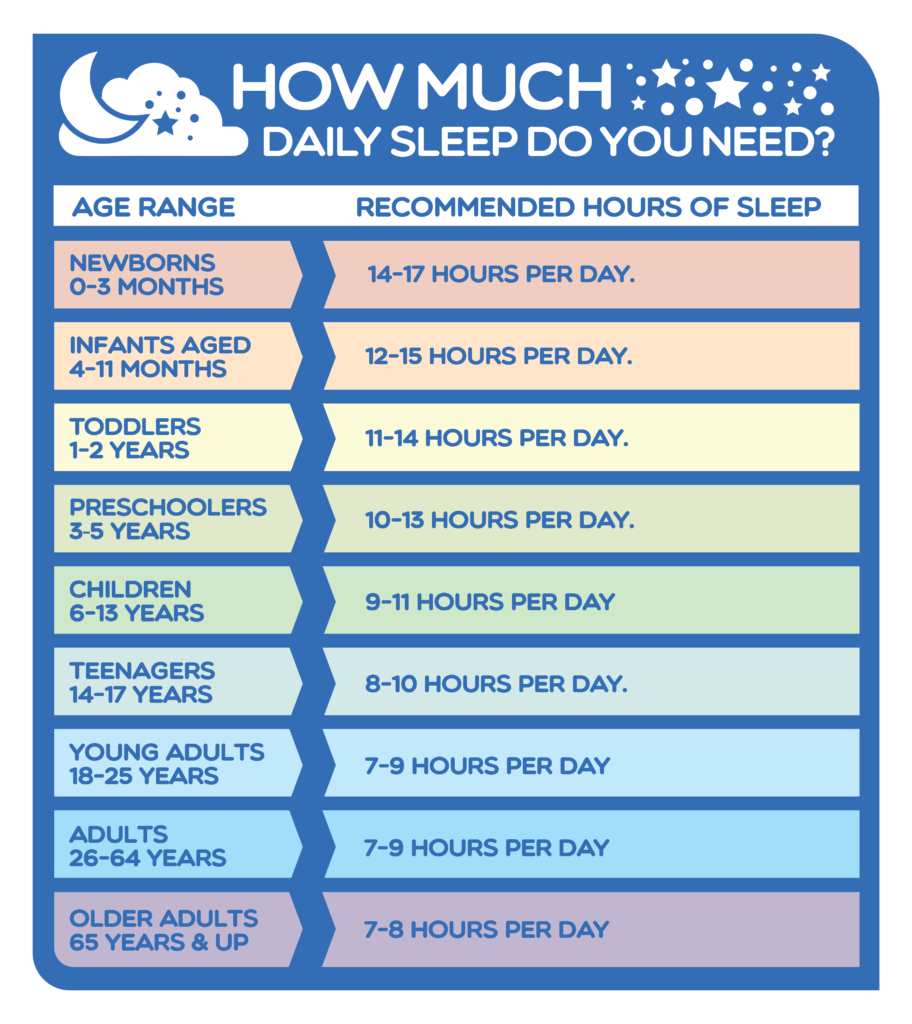
Research shows that there is no fixed number of hours that can account for sleep deprivation. Instead, it is simply the lack of enough sleep for you as an individual.
According to a report in 2015, this is how many total hours of sleep were recommended for each age group per day:
- Newborns (0-3 months): 14-17 hours
- Infants (4-11 months): 12-15 hours
- Toddlers (1-2 years): 11-14 hours
- Preschoolers (3-5): 10-13 hours
- School-age children (6-13): 9-11 hours
- Teenagers (14-17): 8-10 hours
- Younger adults (18-25): 7-9 hours
- Adults (26-64): 7-9 hours
- Older adults (65+): 7-8 hours
It’s worth noting that these are totals for the day, so you don’t have to get all your sleep at once. Naps are a great way to pay off sleep debt.
What Is Sleep Debt?
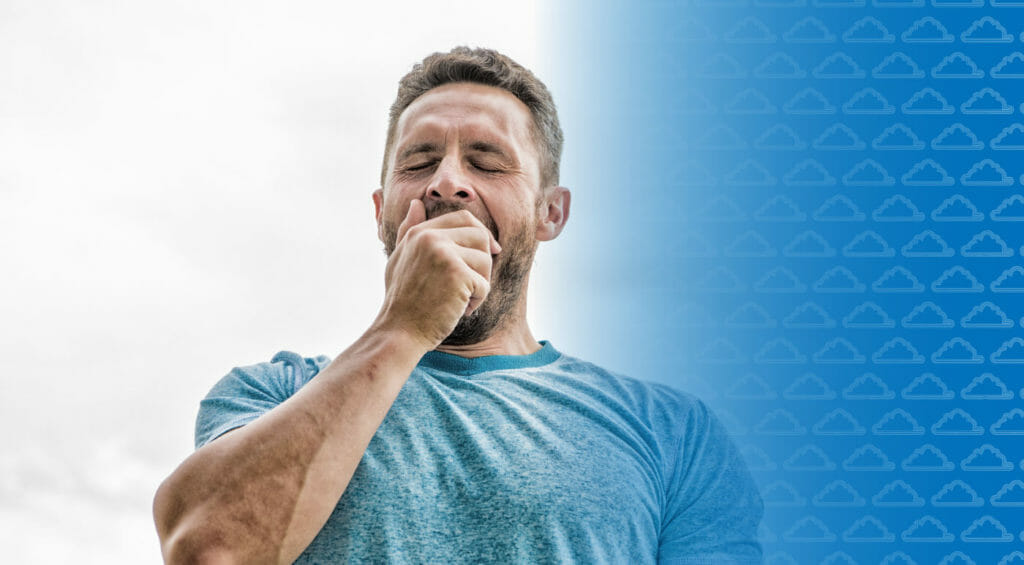
Another term you might have heard is sleep debt. In a recent study, sleep debt was described as a state in which a person has insufficient sleep for a certain number of days. Basically, sleep debt occurs when you get less sleep than you need. When you continue to experience sleep deprivation, you start to build up sleep debt.
The difference in the number of hours of sleep you need and the amount of sleep you get is your sleep debt. Adults need 7 to 8 hours of sleep each night, though this can vary from person to person. When you don’t get enough sleep, your debt keeps adding up. Just like financial debt, you will have to pay this off eventually to avoid the consequences.
Just like other kinds of debt, your sleep debt doesn’t disappear.
Sleep debt can lead to total sleep deprivation and partial sleep deprivation. In partial sleep deprivation, you have likely had poor and insufficient sleep for several days or weeks. This is the more common kind of sleep deprivation. Total sleep deprivation is when you haven’t had any sleep in at least 24 hours, such as during travel or when taking part in a specific sleep study.
How to Pay Off Your Sleep Debt
Just like other kinds of debt, your sleep debt doesn’t disappear. Instead, those missed hours of sleep add up over time. Unpaid sleep debt can eventually result in mental and physical damage.
If you have some sleep debt, consider paying it off by going to sleep earlier than usual, sleeping in on a day off, or taking a nap.
What Are the Signs of Sleep Deprivation?
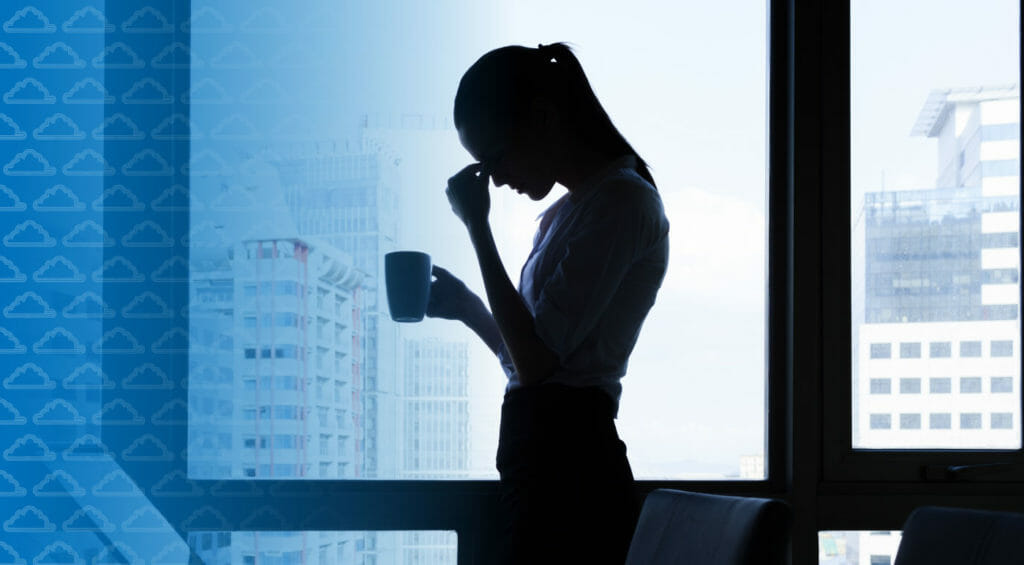
As shown above, most adults need 7 to 8 hours of sleep at night. According to a study in 2013, these are some signs of sleep deprivation:
- You rely on an alarm clock
When you get enough sound sleep, you should be able to wake up on time without an alarm clock. If you hit snooze, especially more than once, it’s clear that you did not get enough quality sleep.
- You feel drowsy when driving
If you feel a sudden urge to sleep while driving or you feel too drowsy to concentrate, you are likely sleep deprived. Driving while sleep deprived can cause car accidents, and it’s very important to avoid doing it.
- You consume too much caffeine
I know that it’s vital to start your day with a cup of coffee, and that’s fine. But needing multiple cups of coffee or any other caffeinated drink to get you through the day is not fine. Depending on caffeine and energy drinks to keep you awake and alert throughout your day means you’re sleep deprived.
- You make mistakes
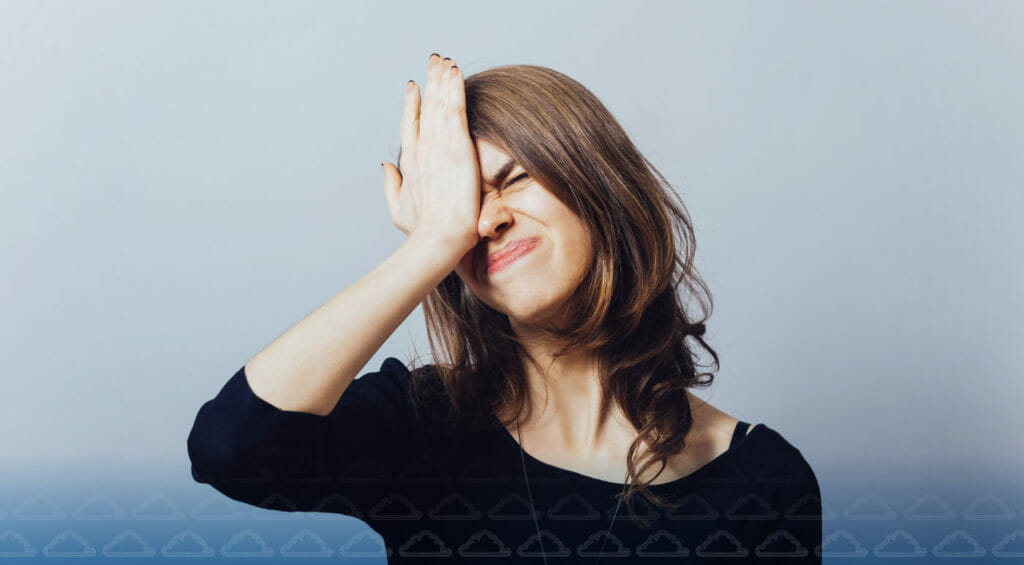
When you are tired, you cannot focus well and you tend to make mistakes. Neither your body nor your brain can function at their full potential when you’re sleep deprived. One study discovered that sleep-deprived individuals took 14% longer to complete tasks and made 20% more mistakes than individuals who were well rested. So, reconsider sacrificing your sleep in the name of being productive or studying!
- You’re forgetful
Insufficient sleep hinders your short-term memory. This explains why you might not remember things when you don’t get a sound sleep.
- You’re cranky or irritable
Lack of sleep can result in anxiety, depression, and frustration. An imbalance in brain chemicals from not getting enough sleep can make you cranky in situations where you wouldn’t normally react that way.
- You have a weak immune system
When you do not get sufficient sleep, your immune system is weakened. And when it’s unable to defend your body against diseases, you could wind up getting sick more often. In one study, participants had a significant reduction in the immune system chemicals that fight off infection after only one night of sleep deprivation.
- You’re sleepy during the day and need naps
Sleep-deprived people doze off during the day and might take (or wish they could take) several naps. They might doze even when they don’t intend to take a nap, like while watching TV. Unfortunately, while napping can be a way to fix sleep deprivation, napping too close to bedtime or for longer than 30 minutes can disrupt your sleep rhythms even more.
What Is Sleep Deprivation vs. Insomnia
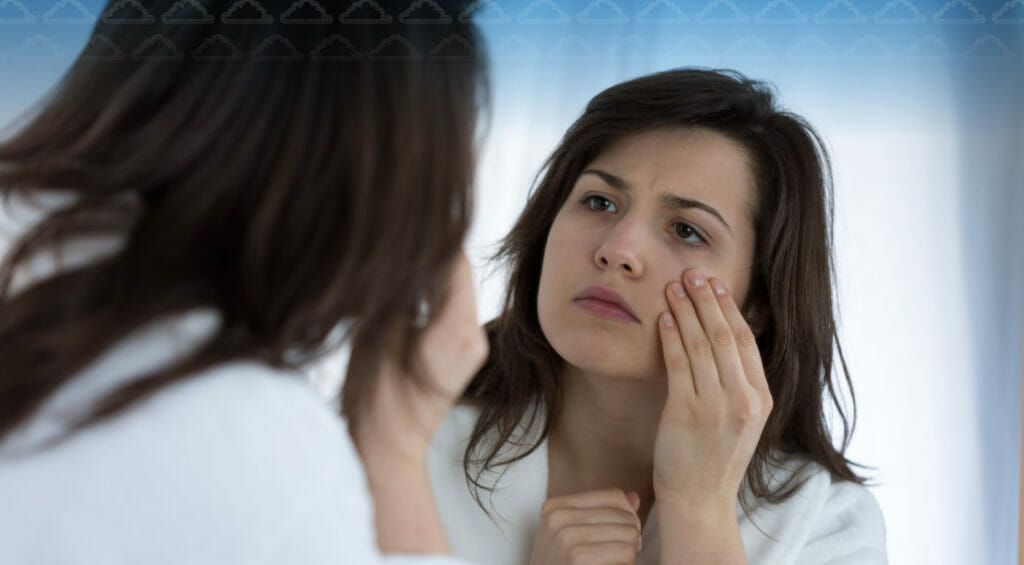
Many people are confused by the difference between insomnia and sleep deprivation. Here are some subtle differences between the two.
Insomniacs experience difficulty falling asleep or staying asleep. Sleep deprivation isn’t a disorder, but the fact that you have not gotten enough sleep. So you can be suffering from sleep deprivation without being diagnosed with insomnia.
People at Risk for Sleep Deprivation
- People who have restricted or limited time for sleep, such as people who spend long hours at work, parents of young children, caregivers, or people with more than one job.
- First responders, shift workers, people who have early school schedules, or people travel for work are all susceptible to schedules that conflict with their internal sleep clock. This, in turn, can disrupt their sleep cycle.
- People who abuse drugs or alcohol, take medication to keep themselves awake, or who don’t give themselves enough time to sleep.
- People taking medications or who have a medical condition that interferes with their sleep.
Causes of Sleep Deprivation
The causes of sleep deprivation are pretty simple: not getting enough sleep, or enough quality sleep. But the reasons why you’re not getting enough sleep can be more complex: an imbalance of brain chemicals, stress, aging, too many personal obligations, long work hours, sleep disorders or medical problems, or excessive time spent using screens before bed.
Keeping a sleep log is a way to track your sleep and gather information about the amount and quality of the sleep you get.
Multiple causes can intersect, so several of these issues could combine to cause your sleep deprivation. For example, you could be working long hours, including checking and replying to emails on your phone before bed.
Diagnosis of Sleep Deprivation
According to a recent study, keeping a sleep log is a way to track your sleep and gather information about the amount and quality of the sleep you get. When you visit a sleep expert or a doctor, they will ask you to fill out a sleep log for one or two weeks to get a better understanding of your sleep. Your sleep log will provide a very granular and comprehensive picture of your sleep cycle. A medical professional can prescribe necessary treatment, so it’s important to fill out the sleep log accurately.
Consider consulting a family member or partner. They can report on how you sleep. Their observations can also help you track your progress as you try different treatments.
Your doctor might also use a sleep questionnaire to further understand your sleep patterns and habits. Most sleep questionnaires include questions about your health history, bedtime habits, and how you feel when you wake up.
Effects of Sleep Deprivation
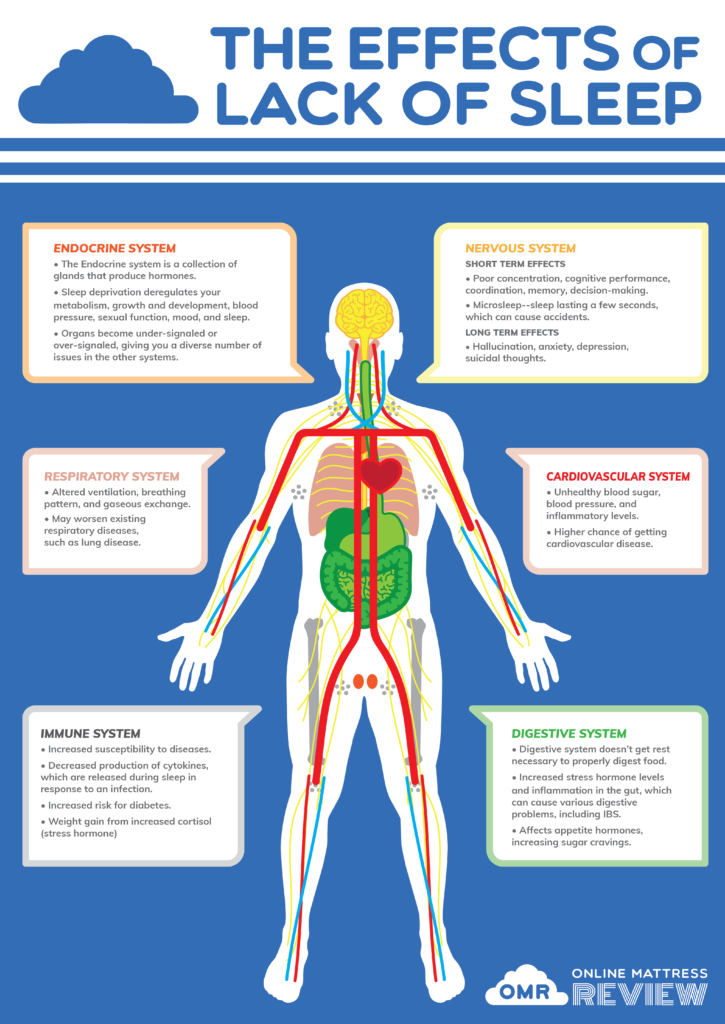
What is sleep deprivation’s biggest effect? It’s probably on your central nervous system, aka your brain.
Central Nervous System Effects
Good sleep helps us to remember; think clearly; and most of all, make decisions. According to one study, when we do not get good quality sleep, our executive function is impaired. Since executive function helps your brain perform well in every part of your life, this is a major effect.
Short-Term Effects
Poor concentration and cognitive performance: The brain has a “toxin”-removing system that works most efficiently when we sleep.
This cleaning process allows clears the mind and improves concentration, brain performance, and mood. If you don’t get enough sleep, your brain doesn’t get a chance to clean itself, which leads to poor overall cognitive and emotional health. Mood swings and paranoia can even occur.
For example, in 1965, 16-year-old Randy Gardner went without sleep for 11 days and 24 minutes. That’s 264.4 hours! An article in The Psychiatric Times described Randy’s state at the end of his deprivation: his face was expressionless, he had some speech impairments, he lacked focus, and his mental abilities were diminished.
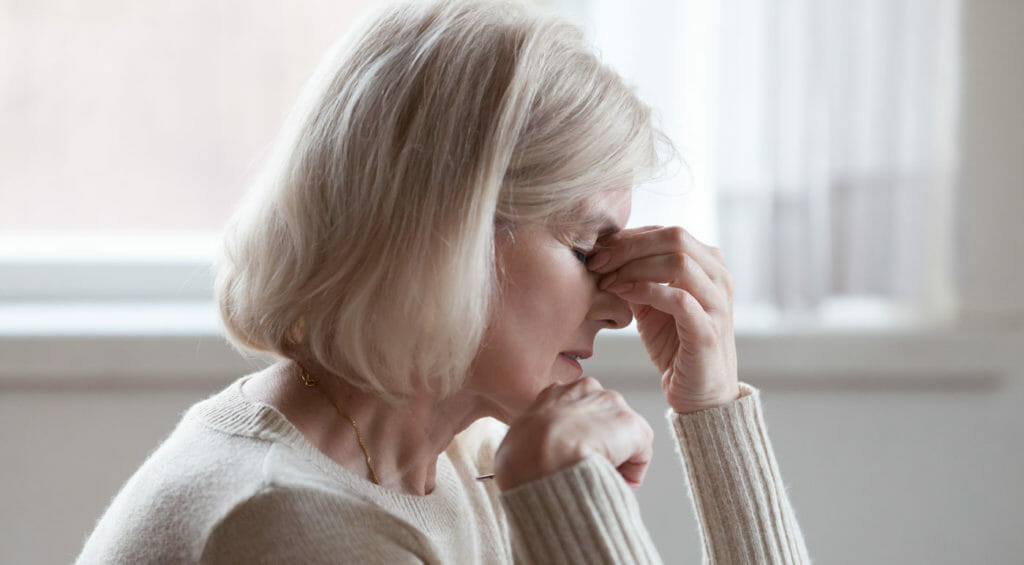
Poor coordination: Sleep-deprived people have poor hand-eye coordination, similar to that of people who are intoxicated.
Poor memory: Sleep helps shift previously learned information from short-term to long-term memory. If you’re sleep-deprived, your memory may not be up to the same speed or quality of non-sleep deprived people. That means you might forget where you put your keys, miss deadlines, or forget about responsibilities.
Poor decision-making: A study by Dardo Tomasi and his colleagues at the Brookhaven National Laboratory discovered that just 24 hours of sleep deprivation reduces oxygen delivery to the brain by 6%. About 12-14% of this reduction takes place in the parietal and prefrontal cortex, the areas we use for thinking, problem solving, sorting ideas, and differentiating between right and wrong. That means that all of your energy is focused on keeping you awake, rather than actually helping you think clearly and solve problems.
Drowsiness and microsleep: When you are sleep deprived, the brain compensates by having microsleeps, naps that last for only a few seconds. Because they are so short, you may not even notice you’ve fallen asleep, but they can cause dangerous accidents if they occur while you’re driving or doing something else that requires your full attention. Long-Term Effects
Research has shown that hallucinations, anxiety, depression, and suicidal thoughts are common consequences of chronic sleep deprivation.
For example, a recent study found that hallucinations and other psychotic symptoms increased as individuals stayed awake for long periods of time (total sleep deprivation).
Immune System Effects
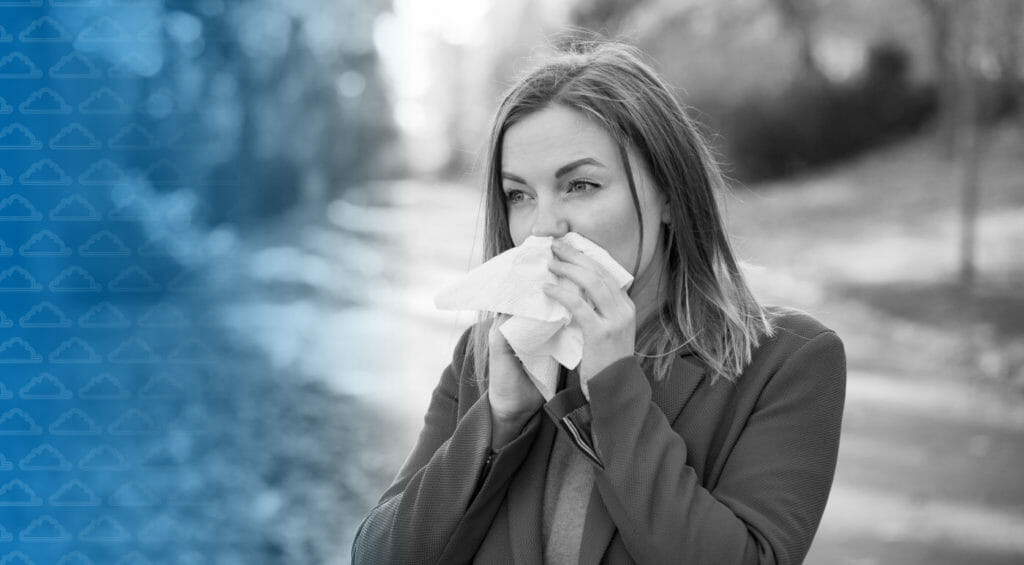
Your immune system suffers from sleep deprivation on both a short-term and long-term basis. According to research, when you suffer from lack of sleep, your immune system suffers and you become more susceptible to diseases.
Sleep deprivation may decrease your body’s production of cytokines, which are immuno-modulators that are released in response to an infection and also during sleep.
Respiratory System Effects
According to research in 2009, sleep disorders disrupt your sleep cycle, which alters your ventilation, breathing patterns, and gaseous exchange. This may result in the exacerbation of existing respiratory diseases, such as chronic lung disease.
Digestive System Effects
Sleep allows the digestive system to rest and heal from working all day to digest food. Sleep deprivation increases stress hormone levels and inflammation in the gut, which can cause problems like irritable bowel syndrome (IBS). In this study, sleep deprivation was common among patients with IBS, and could potentially increase the severity or frequency of symptoms.
In addition, sleep deprivation affects your stress and appetite hormones, increasing your cravings for sugary and fatty foods, which can irritate your gut. A population-based longitudinal study found that sleep loss reduced leptin, a hormone that lets you know when you’re full, while increasing ghrelin, a hormone that stimulates hunger. Furthermore, body mass index has been correlated to sleep deprivation, making it a positive feedback loop; lack of sleep leads to cravings and overconsumption of food leads to lack of sleep.
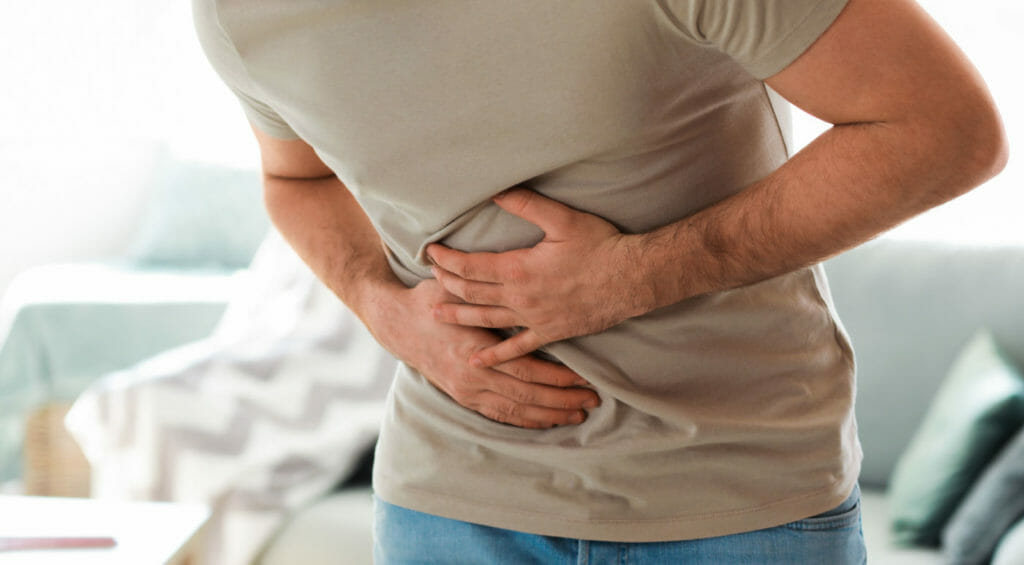
Cardiovascular System Effects
Sleep is key to keeping your heart and blood vessels healthy, since it gives your body time to heal and repair itself. When you’re sleep deprived, consistent research results show that you are more likely to develop cardiovascular disease.
Endocrine System Effects
The endocrine system is a collection of glands that produce hormones, which act as messengers from the brain to cause specific actions in certain body parts. For example, when you eat a cookie, the brain signals the pancreas to release a hormone called insulin to absorb sugar into your muscles.
The endocrine system supports many different functions in the body, including regulating your metabolism, promoting your growth and development hormones, maintaining healthy blood pressure, promoting your sexual function and healthy reproduction, promoting positive mood, and promoting healthy sleep.
A dysfunctional endocrine system means poor hormone function, which means your organs won’t get the signals they need to do their jobs.
What is sleep deprivation’s effect on the endocrine system? When you are sleep-deprived, the endocrine system gets confused and doesn’t send signals properly. Research shows strong evidence that sleep deprivation disrupts your endocrine system.
A dysfunctional endocrine system means poor hormone function, which means your organs won’t get the signals they need to do their jobs. For example, if the pancreas gets wrong signals, it might not produce the right amount of insulin, which can lead to blood sugar accumulation, which can lead to diabetes.
Research evidence shows that lack of sleep increases your risk of developing diabetes. For instance, 24 hours of sleep deprivation makes a person as insulin-resistant as someone who has already been diagnosed with type 2 diabetes.
How to Prevent Sleep Deprivation
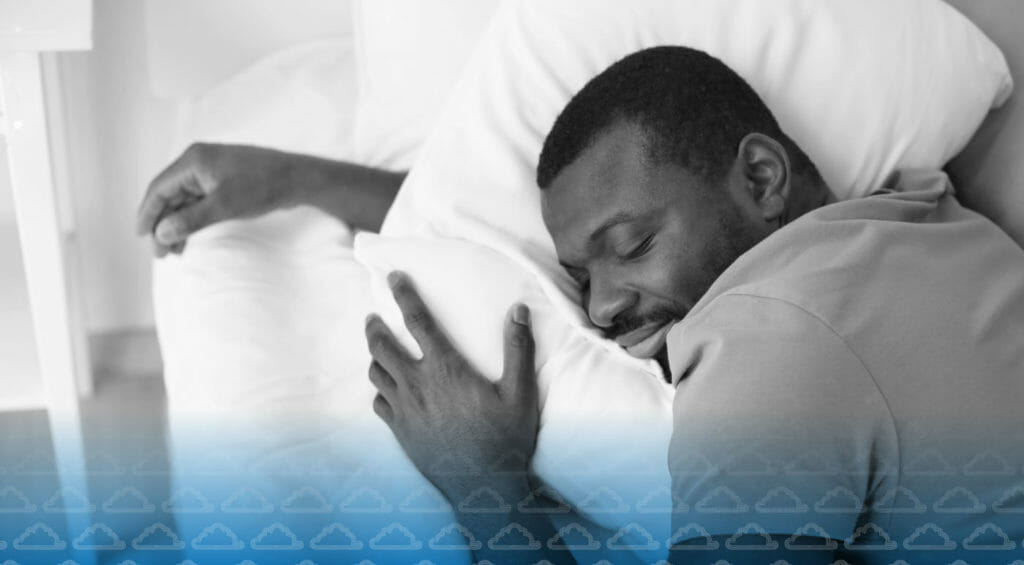
Now that you know the answer to the question “what is sleep deprivation?” and you understand its effects, let’s look at how to prevent sleep deprivation.
Cool, quiet, and dark are the best sleeping conditions. Try these tips to get better sleep:
- Only use your bed for sleep, sickness, and sex.
- Make sure your room is dark. Consider wearing an eye mask or putting shades or curtains across your window. Light from cars or street lamps can negatively impact your sleep.
- Avoid using electronics before you go to bed. Add blue light filters to any screens you might look at close to bedtime, like your phone. Better yet, stop looking at these screens at least an hour before bed, and leave them outside your bedroom. Consider getting an alarm clock, especially one that stays dark and doesn’t have glowing numbers.
- Don’t eat in your bedroom, and avoid eating right before you go to bed. Spicy foods make your body warm and heavy meals take a great toll on your digestive system. The digestive system continues to work well into the night, which can result in drowsiness the following day.
- Limit your stimulant intake. Don’t drink coffee in the afternoon, and if you smoke, quit. Both substances disrupt your sleep.
- Adjust the temperature in your bedroom. The ideal sleeping temperature is slightly cooler than the comfortable temperature when you are awake.
- Make sure there is little to no noise in your room. Consider earplugs if you can hear a lot of street noise.
- Buy a mattress that meets your individual sleeping needs. Do you like a firm mattress? Maybe memory foam? Make sure your pillow is comfortable and you have adequate bedding for the time of the year (this may change seasonally).
- Take a warm bath before bed. Have you ever noticed that you get really cold after getting out of the bath? Warm baths dilate the blood vessels, decreasing blood pressure. This in turn, cools your body, and the cool temperature can promote the start of the sleep cycle.
You might think that a few glasses of wine or a sleeping pill will help you get better sleep, but you’d be wrong. The metabolites in alcohol stimulate you and disrupt your REM sleep. This means that alcohol can smooth the way to falling asleep, but you won’t enjoy the restorative benefits of deep sleep and you won’t wake up feeling refreshed.
And sleeping pills? Research shows that they’re not the answer to solving the problem of sleep deprivation, either.
Other sleep deprivation prevention tips include:
Maintain Good Sleep Hygiene
Sleep hygiene is a routine or set of habits that affect your sleep cycle, either positively or negatively. Good sleep hygiene includes limiting naps to 20-30 minutes in length, minimizing the amount of light in your bedroom at night, having a winding-down routine, and calming your mind and relaxing your body before bed.
Make a Sleep Schedule
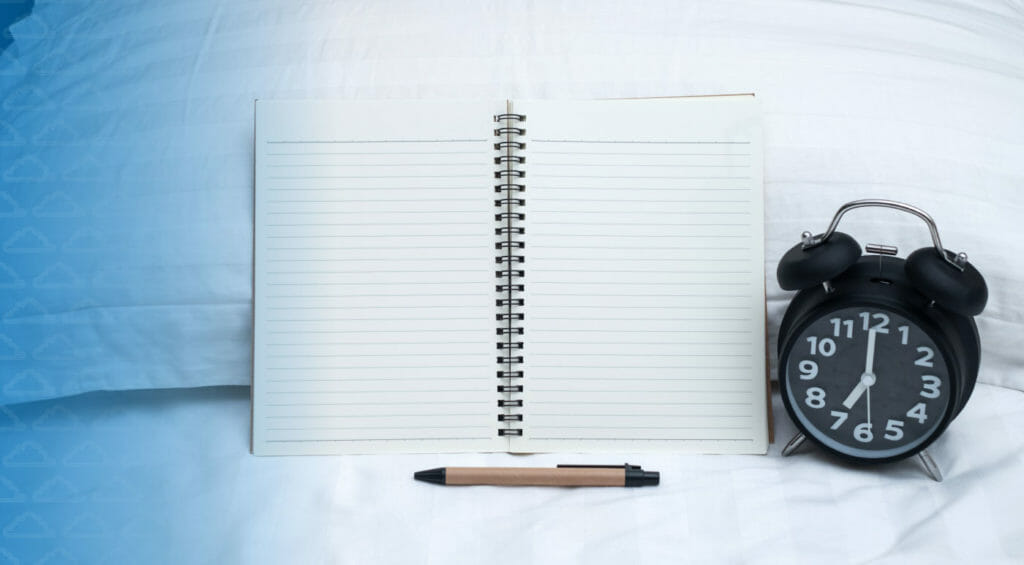
Create a sleep schedule and be consistent. Go to bed and wake up at the same time every day. Create a winding-down routine to help you relax before you go to bed and further solidify this sleep schedule.
Also consider setting an alarm for when you want to start to get ready for bed. This will help you stay on schedule and give you enough time to wind down and then get enough sleep.
Let Go of Your Stress
Anxiety definitely doesn’t help you sleep. It elevates a stress hormone called cortisol, which in turn leads to a decline in the sleep-inducing hormone melatonin. Let go of stress and negative thoughts by journaling, practicing gratitude, or meditating. Studies have shown that people who meditate regularly sleep more deeply. Meditation during the day allows your brain to manage stress and regulate sleep-optimizing hormones.
Try Relaxation Techniques
Progressive Muscle Relaxation
Progressive Muscle Relaxation “involves tensing groups of muscles all over the body one by one and then consciously relaxing them again.”
You can listen to guided meditations in which the instructor tells you to tense and relax each muscle at a time. Or you can simply start with the big toe on your right foot and move through your foot, then up your leg, and so on around your body until you fall asleep.
Let go of stress and negative thoughts by journaling, practicing gratitude, or meditating.
Breathing Exercises
Deep breathing exercises help your body relax. Here’s a popular breathing exercise for you to try:
Breathe in as you count “1, 2, 3, 4” in your head. Then count “4, 3, 2, 1” as you breathe out. That’s it! Continue until you feel your body start to relax.
When to Seek Medical Care for Sleep Deprivation
If you have implemented a sleep routine and followed the tips above but you still can’t sleep, it’s time to talk to a medical professional.
Medication for Sleep Deprivation
Generally, medication is a last resort for complicated cases of sleep deprivation. Lifestyle modifications are the first and easy option for improving sleep, and they work for most people.
What is sleep deprivation medication, and how do you find the right one? It’s important to talk to your doctor. Sleep medications such as benzodiazepines have been shown to cause dependence and negative health consequences, and your age, health history, and other factors can affect your reaction to the medications.
Your doctor may want to investigate whether you have a sleep disorder, such as insomnia, sleep apnea, restless leg syndrome, or narcolepsy.
Can I Die from Sleep Deprivation?
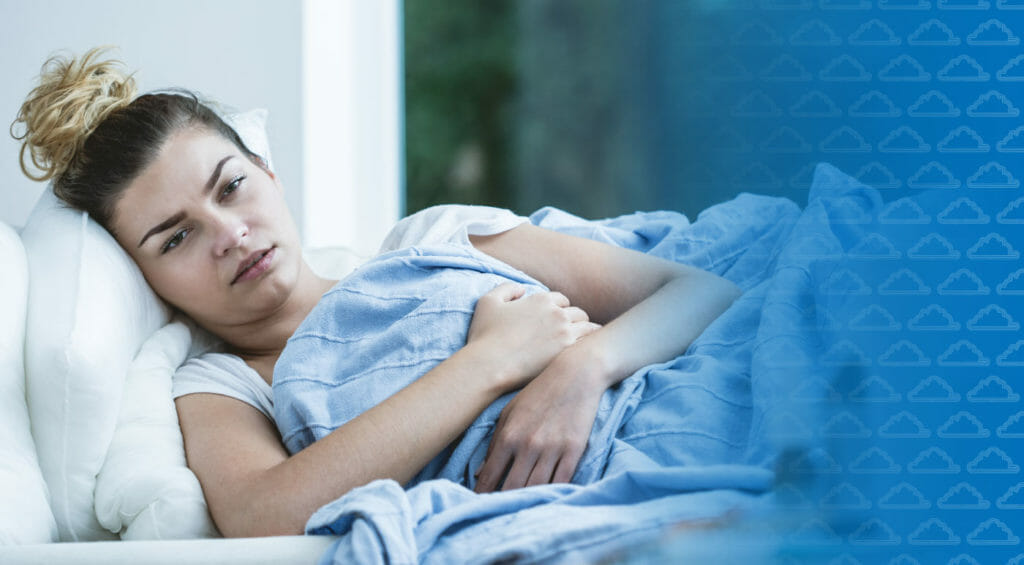
This is a complicated question. In short, yes.
The effects of sleep deprivation are devastating to your cognitive abilities, immune system, and overall brain-body connection. You could die in a car crash due to drowsy driving. You could die of an infection due to reduced immune function after a long-term lack of sleep. You could become emotionally unstable due to a chemical imbalance in your brain.
Generally, medication is a last resort for complicated cases of sleep deprivation.
You could increase pressure on your stress system, cause uncontrollable inflammation, disrupt your normal metabolism, and increase your risk for diabetes, cardiovascular disease, and strokes. So yes, sleep deprivation can eventually kill you.
But how much sleep deprivation is fatal? Your body is designed to compensate as much as possible, but at some point it will be exhausted and your organs will start to fail. Underlying health problems or older age can mean that sleep deprivation has worse effects. For example, The Journal of the American Heart Association published a study that observed that people with high blood pressure and diabetes who slept for less than six hours had a higher risk of death.
The Bottom Line: What Is Sleep Deprivation?
Sleep deprivation is simply the lack of enough sleep for your brain and body to function.
Research shows that prolonged sleep deprivation has been linked to a decrease in health across your body and in your brain. Not getting enough sleep is not an option. Luckily, as we explained, lifestyle changes help resolve most cases of sleep deprivation so you can get back to waking up refreshed.